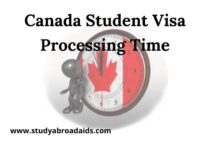Can IELTS Results be Combined?
Passing the IELTS, an examination that tests foreigners’ fluency and comprehensive abilities, is a criterion for international students in the US, Canada, UK, Australia, and New Zealand. The test is important because it helps determine how well a student will be able to cope. Also, it rates your changes against the language barrier, which can make studying very tedious.
Due to nervousness, lack of preparation, or other reasons, some students fail to pass the IELTS in one sitting. Therefore, they retake the exam to see if they can obtain better grades. However, what then happens if both grades are sub-par? At this point, the students begin to wonder if they can combine IELTS results.
Key Takeaways
Failure is a tough bite to chew; it can cause one to ponder on regrets. However, it can also open one’s mind up to possibilities such that you’ll begin to seek ways to derive them. In this process, one often stumbles upon solutions. Such is the case with the IELTS.
If you’ve performed below average and don’t trust your chances of getting it at a go, you start seeking solutions. Then you wonder if combined grades can catapult you to victory. Oh yes, it can. You can combine the results of two IELTS tests that you undergo within six months. It can help you achieve a satisfactory fulfillment of requirements.
What is IELTS?
The IELTS is short for “International English Language Testing System”. It is a 2hours, 45 minutes test taken by foreign migrants, students, and workers to ascertain their communicative abilities and command of the English Language. The scalar gradings of the test range from one to nine. The higher your IELTS score, the better.
Here are the grade scores and their interpretations:
- One: A non-user of the English language
- Two: An intermittent user facing great hardship in speaking and writing
- Three: A minimal user who understands a few common terms
- Four: A limited user lacking complex knowledge
- Five: A modest user of English with the ability to handle short basic conversations
- Six: A competent user with little knowledge of complex English and only a few inaccuracies
- Seven: A good user with few misunderstandings and mistakes
- Eight: An excellent user with the ability to handle complex English
- Nine: Expert user who has excellent fluency in diction and mastery of vocabulary.
There is no particular pass score as it differs in each institution, corporation, or organization. Also, your need as a migrant, student, or worker determines the score you will need to hit. The test covers former areas, namely listening, reading, writing, and speaking. This broad coverage ensures the test of adequacy in each sphere of communication.
Be it for work or study? IELTS for non-natives is essential. It gives you a better chance for admission and employment. Also, prowess in the English language boosts your social relations. It also broadens your scale of knowledge. In a nutshell, passing the test would greatly benefit you.
Can You Combine Results of The International English Language Testing System?
You could resit IELTS if the result of the previous one wasn’t satisfactory. First, however, you have to study hard and put in effort to improve your command of English. If, in the end, your grade still doesn’t measure up, then you combine both results.
However, there are rules governing the combination of IELTS results. These are the rules:
- You must have taken the two tests within six months. You cannot combine tests written more than six months apart.
- You should undergo tests in all four areas/ sections at a go- Reading, writing, listening, and speaking.
- You must have an overall band score of seven.
- You must not score anything below 6.5 in all the four sections in both sittings.
If there is a breach in any of these rules, you should not attempt combining your results as institutions will not accept this. Please note that the result of your IELTS examination is valid for two years. Therefore, your IELTS examination certificate is acceptable for two years after taking the test.
Although you can resist your IELTS exam to combine your results, you shouldn’t attempt this without preparing. If you do not prepare and make visible improvements, you’re bound to fail again. To aid yourself, you can review IELTS past questions and read web content on how to prepare for the test.
Read: Study Abroad Essentials: What You Need To Make Your Travel/Migration Easy
Conclusion
If you aspire to live, study, or work in an English-speaking country, the IELTS year is what determines your fate. If you fail the test on the first trial, you still stand a second chance. If you resit the examination based on certain conditions, you can combine both results and apply. If you comply with the rules of the combination, you stand a high chance of gaining that employment or admission you seek.


